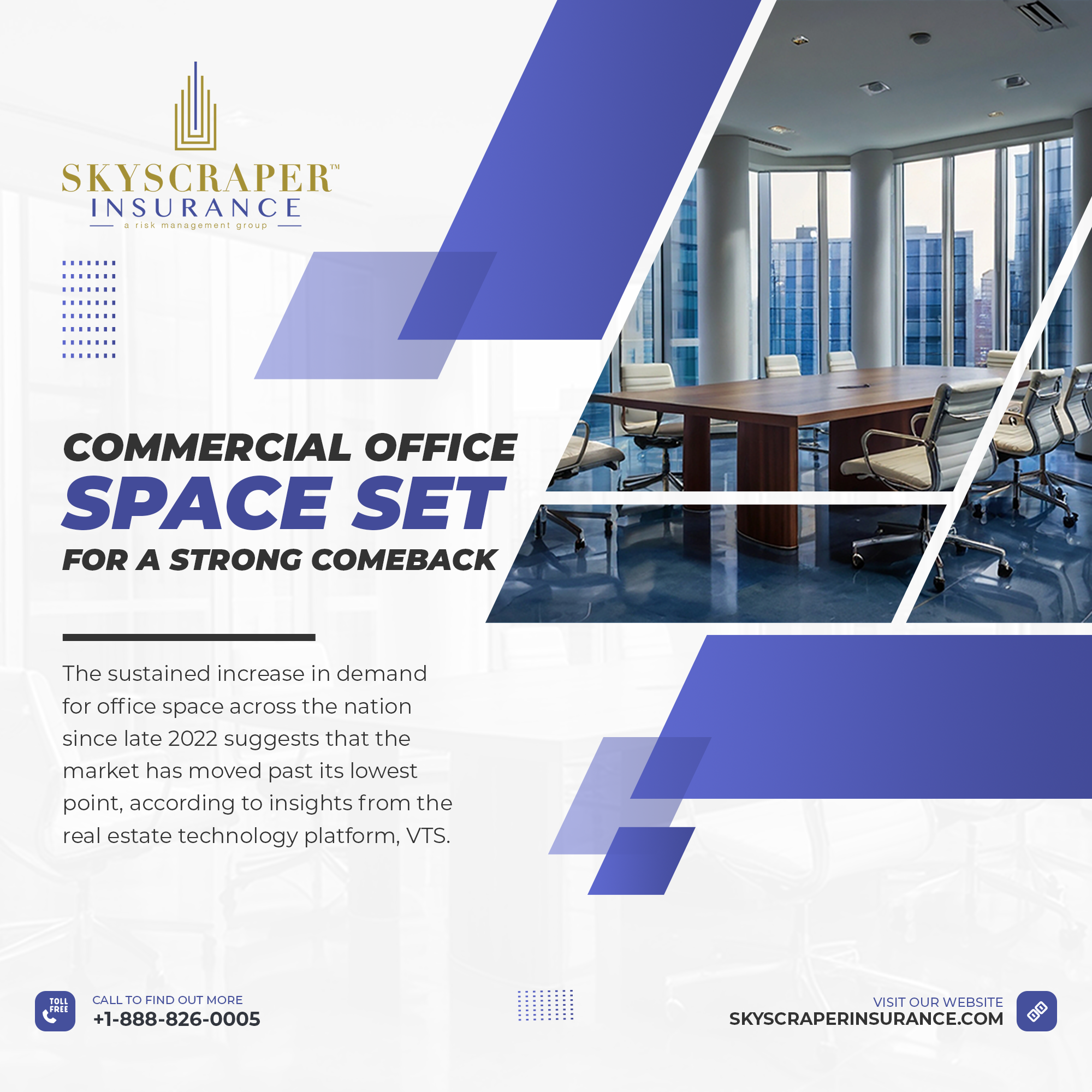The sustained increase in demand for office space across the nation since late 2022 suggests that the market has moved past its lowest point, according to insights from the real estate technology platform, VTS.
Demand for office space began to rise in late 2022 and continued into early 2023. Since then, the office market has experienced a period of stability and growth, supported by favorable economic factors, indicating a market rebound.
This conclusion is drawn from the VTS Office Demand Index (VODI), which tracks unique new tenant tour requests for office properties in key U.S. markets. The VODI serves as an early indicator of future office leasing activity.
According to the index, demand for office space has grown consistently over the past 12 months, closing the second quarter with a 17% year-over-year increase and a 34% rise from the VODI’s lowest point in December 2022.
A significant shift in office-based employment patterns further supports the belief that demand for office space has stabilized. After reaching its peak in August 2022, office-based employment declined by 3.9% in early 2024. However, this trend has since stabilized, and employment growth has remained steady. Additionally, a recent decrease in work-from-home rates has fueled the renewed demand for office space.
“They say you can only recognize a market bottom after it has passed, and the office space market is no exception. Following what we now see as the bottom, the national demand has gradually increased, though it remains susceptible to economic challenges,” said Nick Romito, CEO of VTS. “However, the growth observed in VODI over the past 18 months, coupled with positive trends in the office-using workforce, suggests that the market has reset, and the worst is behind us.”
It’s important to note that this national trend does not impact all local markets equally. Cities like Los Angeles and New York City have seen healthy growth in office space demand, while markets such as San Francisco and Washington, D.C., have experienced prolonged stagnation. In Los Angeles, office space demand surged in the second quarter, briefly surpassing pre-COVID levels, driven by an increase in the average size of office spaces sought by tenants. New York City followed a similar overall pattern, though with some softness in the second quarter.
Conversely, San Francisco’s demand for office space remains unpredictable, largely due to its tech-focused workforce, which continues to favor remote work more than other industries.
“Markets heavily dependent on the tech sector, like San Francisco and Seattle, are on a markedly different post-COVID recovery path compared to more diversified markets like Los Angeles and New York City. It may take some time before we see office demand in San Francisco and Seattle return to pre-COVID levels,” added Ryan Masiello, Chief Strategy Officer at VTS.









